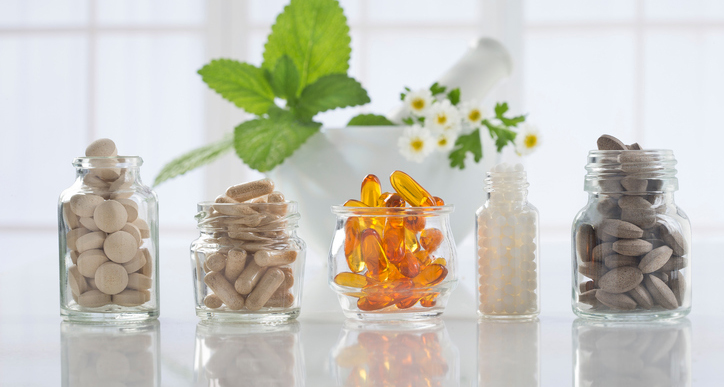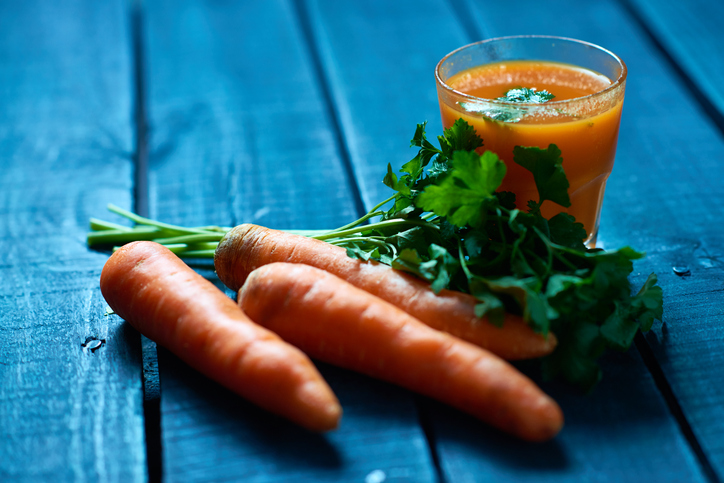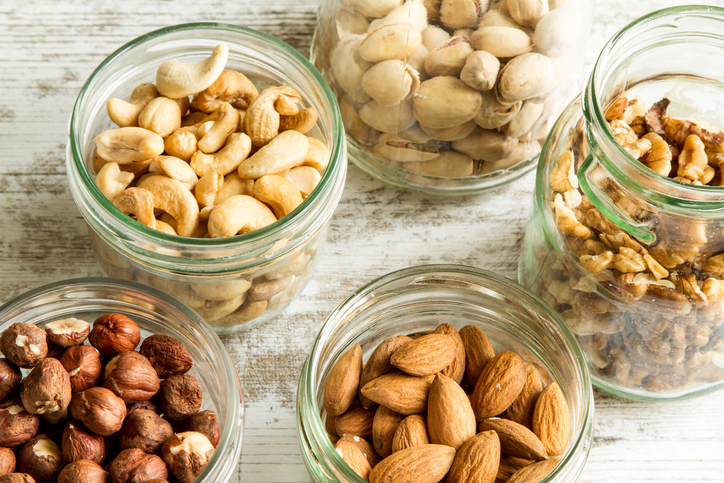Kirsty Henshaw provides a breakdown of the key vitamins we should all be ingesting, where we can find them and what the individual benefits of each are on our life force…

Everyone knows that vitamins are absolutely essential for the growth, maintenance and reproduction of the human body. But there is often confusion over which ones you should take, what foods contain what vitamins and which ones are best for certain health benefits.
Kirsty Henshaw, founder of Kirsty’s, the range of naturally healthy and free-from ready meals, takes a look at the key vitamins and where can they be found in the foods that we eat.
Let’s start at the top of the alphabet with vitamin A. This is essential for healthy eyes and for improving against susceptibility to colds, flu, bacterial and viral infections. The vitamin is also useful in preventing acne and flaky skin, as well as reproductive difficulties.
The good news is that the soluble vitamin is widely available and commonly found in foods including sweet potatoes, carrots, dark leafy greens, winter squashes, lettuce, dried apricots, cantaloupe, fish, liver and tropical fruits. The fact that it helps support eye health may have been a contributing factor to the belief that eating carrots will help you see in the dark!

One of the most important vitamins for children is vitamin D. The vitamin is necessary for the normal growth of children and, when it is absent in diets, there are cases of Rickets, osteoporosis and other bone diseases because, in its absence, bones and teeth do not calcify.
The vitamin is found in oily fish, like tuna, mackerel and salmon, while other foods are fortified with vitamin D, like some dairy products, orange juice, soy milk and cereals.
One of the lesser known, but equally important vitamins, is vitamin E. It’s an important fat-soluble antioxidant that helps stop free-radical production, a key method of preventing chronic diseases and vital to the maintenance of your immune system.
There are also studies looking into the role that vitamin E has played in preventing degenerative brain disorders such as dementia and Alzheimer’s disease. The vitamin is also proven to reduce scar tissue formation, both internally and externally, which is why creams and ointments containing vitamin E are especially effective as they help increase the formation of new blood vessels around damaged areas.
To give your body a boost, the foods containing vitamin E include nuts, seeds, extracted oils and oily fish. The amount of vitamin E per serving of nuts or seeds can vary, but you should expect to receive at least 10% of your daily requirement, and as much as 80% as in the case of sunflower seeds.

One vitamin that has received a lot of attention recently is vitamin K2. Having always been associated with helping the blood clot, the vitamin has also been found to offer other benefits including protection from heart disease, ensuring healthy skin, forming strong bones, promoting brain function and even helping to prevent cancer.
A recent study has revealed that increased intake of vitamin K2 may reduce the risk of prostate cancer by 35%. The best sources of vitamin K2 are egg yolks, butter or chicken liver.
There are many different types of B vitamins, each with important roles to play in a healthy body and mind. Starting with B1, also known as vitamin Thiamine, the vitamin works with other B-group vitamins to help break down and release energy from food, and to help keep the nervous system healthy. The vitamin is found in vegetables such as peas, fresh and dried fruit as well as eggs, wholegrain rice and cereals.
Vitamin B2, (Riboflavin), helps keep the skin, eyes and nervous system healthy. It’s also found in proteins including liver, lamb and milk, as well as yoghurt, spinach and almonds.
One of the important vitamins for giving yourself an energy boost is vitamin B-6. It helps the body to use and store energy from protein and carbohydrates in food and give the production of haemoglobin, the substance in red blood cells that carries oxygen around the body. Fortunately, the vitamin is widely available in foods such as pork, poultry and fish, as well as vegetables.

Further along the B vitamin scale is vitamin B-12, which is essential for the functioning of all cells, particularly with emphasis on bone marrow, nervous tissue and the gastrointestinal tract. Because of its connection with bone marrow, B-12 is needed by the body for the formation of the red blood cells.
B12 is extremely important in a host of other vital physiological processes, such as brain function and nervous system health. Interestingly, vitamin B12 isn’t produced by plants, animals or even fungi, but is instead produced by certain bacteria. The vitamin is principally found on foods of animal origin and among fortified foods of vegetarian/vegan origin.
One of the most commonly known vitamins is vitamin C, as it is widely found in citrus fruits and green leafy vegetables. The vitamin is key for the formation of collagen, the glue that holds us together, such as skin, cartilage, tendon and bone. It is also an important factor in the healing of wounds, as well as fighting bacterial and viral infections which are lurking among us at this time of year.
It’s clear that it takes a range of vitamins to keep ourselves happy, healthy and protected against illness or infections. What’s also evident is that the best way to achieving an intake of all your vital vitamins is to have a balanced diet that includes all the key food groups.
Vitamin facts
- Fat-soluble vitamins (A, D, E, K) can be stored in the body for several years and used when needed, making it less likely to develop a deficiency.
- Water-soluble vitamins (C and B) circulate in the bloodstream and are expelled with the urine if not required.
- All vitamins were discovered in the span of 28 years. The first was vitamin A in 1913 and the last one was folic acid in 1941.
- Kiwis and strawberries contain nearly twice the vitamin C of oranges
- Most vitamins degrade when exposed to light and heat
- Vitamin K stands for ‘koagulation’ the German word for coagulation (blood)
- Your body can produce all the vitamin D it needs in just 20 minutes on a sunny day
For more information, visit www.kirstys.co.uk
